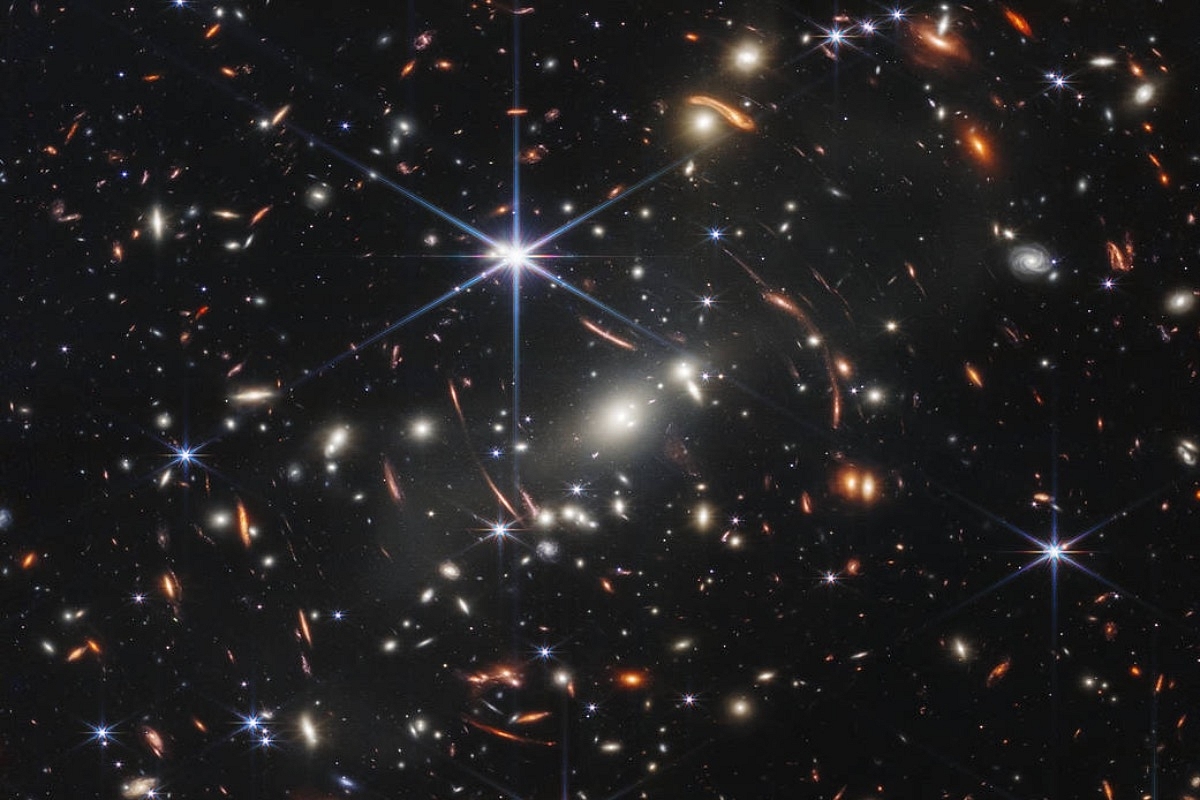Science
NASA's James Webb Space Telescope Captures 'Deepest And Sharpest' Infrared Image Of Distant Universe

Known as Webb’s First Deep Field, the image shows the galaxy cluster SMACS 0723 as it appeared 4.6 billion years ago.
US President Joe Biden on Monday (11 July) unveiled the first image captured by James Webb Space Telescope (JWST).
Launched in 2021, the JWST is a collaboration between US space agency NASA, European Space Agency (ESA) and Canadian Space Agency (CSA).
NASA is set to release the first full-colour images and spectroscopic data captured by the JWST on Tuesday (12 July).
The image released as a 'sneak peek' on Monday is the deepest and sharpest infrared image of the distant universe to date.
Known as Webb’s First Deep Field, the image shows the galaxy cluster SMACS 0723 as it appeared 4.6 billion years ago.
Thousands of galaxies – including the faintest objects ever observed in the infrared – have appeared in Webb’s view for the first time.
This slice of the vast universe covers a patch of sky approximately the size of a grain of sand held at arm’s length by someone on the ground.
This deep field, taken by Webb’s Near-Infrared Camera (NIRCam), is a composite made from images at different wavelengths, totaling 12.5 hours – achieving depths at infrared wavelengths beyond the Hubble Space Telescope’s deepest fields, which took weeks, NASA said in a statement.
The combined mass of this galaxy cluster acts as a gravitational lens, magnifying much more distant galaxies behind it.
Webb’s NIRCam has brought those distant galaxies into sharp focus – they have tiny, faint structures that have never been seen before, including star clusters and diffuse features.
Researchers will soon begin to learn more about the galaxies’ masses, ages, histories, and compositions, as Webb seeks the earliest galaxies in the universe.
Support Swarajya's 50 Ground Reports Project & Sponsor A Story
Every general election Swarajya does a 50 ground reports project.
Aimed only at serious readers and those who appreciate the nuances of political undercurrents, the project provides a sense of India's electoral landscape. As you know, these reports are produced after considerable investment of travel, time and effort on the ground.
This time too we've kicked off the project in style and have covered over 30 constituencies already. If you're someone who appreciates such work and have enjoyed our coverage please consider sponsoring a ground report for just Rs 2999 to Rs 19,999 - it goes a long way in helping us produce more quality reportage.
You can also back this project by becoming a subscriber for as little as Rs 999 - so do click on this links and choose a plan that suits you and back us.
Click below to contribute.
Latest